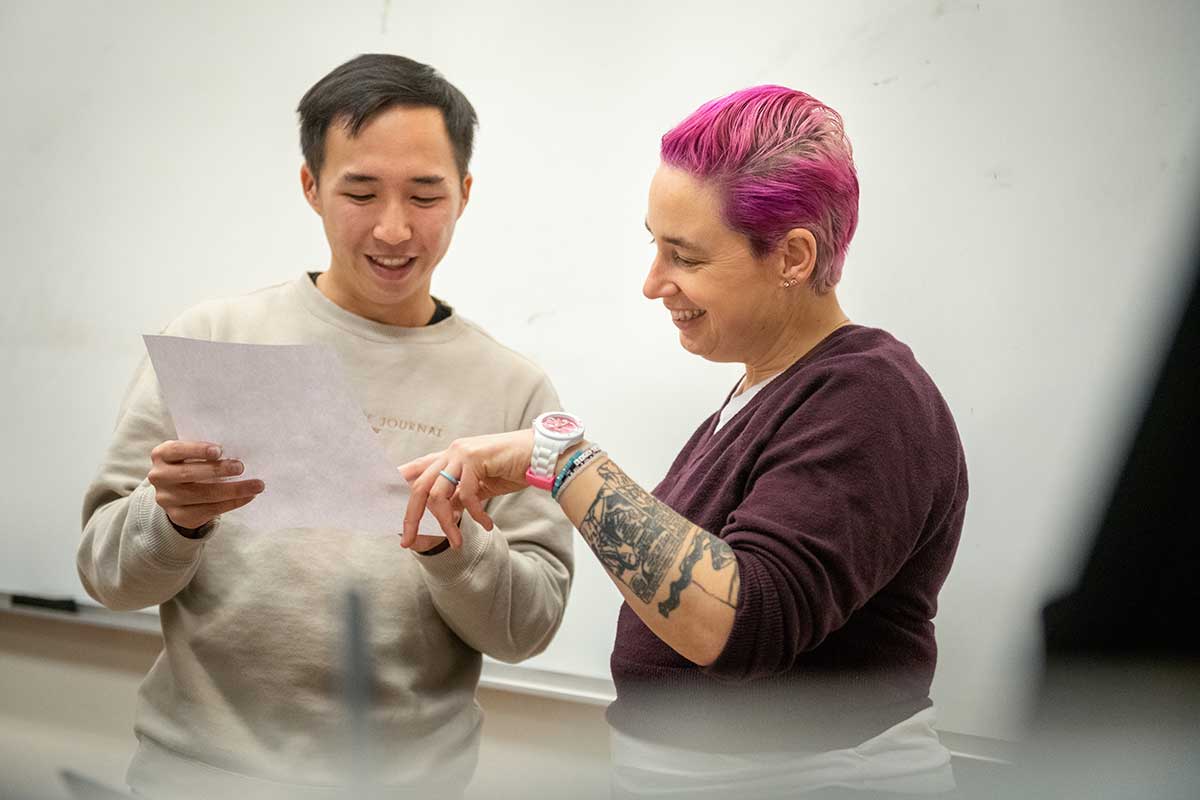
MS in Computer Science
The MS in Computer Science will prepare you for careers in a range of industries. Whether you take a generalist or specialist path, the program will equip you to tackle diverse challenges and answer big questions. You’ll build a strong base of knowledge as you gain expertise in rapidly growing areas like AI, human-computer interaction, game design, security, and more. Discover the transformative potential of a computer science degree from Khoury College.
Program highlights
Locations
Boston, Arlington, Miami, Oakland, Portland, Seattle, Silicon Valley, Vancouver (admit term varies by location)
Credit hours
32 total semester hours required
Schedule
Core courses: Fall, Spring, Summer
Program modality
In person or online

Take your career to the next level
Career prospects: A wealth of opportunities
Our graduates have found success in a wide range of careers, including:
- Full-stack developer at Cartera Commerce, Inc.
- Software development engineer at Amazon
- Software engineer at Microsoft
Co-ops and internships: Rated #1
Our co-op program, ranked #1 in the country by U.S. News & World Report, offers opportunities to build on your knowledge and expertise with hands-on experience. Co-op and internship positions include:
- IT applications developer
- Mobile engineer
- Software developer
- Software engineer
- Web developer
Research opportunities: Pursue your passion
Engage with top-tier researchers to enrich your learning, boost career opportunities, and uncover groundbreaking discoveries. Whether pursuing a research-oriented career, applying to PhD programs, or seeking hands-on field experience, our diverse research projects empower you to make impactful contributions.
Learning outcomes
The MS in Computer Science will equip you with technical knowledge and career preparation. As a graduate, you will:
- Exhibit proficiency in the design, implementation, and testing of software.
- Demonstrate skills and experience working in small teams.
- Apply algorithmic and theoretical computer science principles to solve computing problems from a variety of application areas.
- Demonstrate the ability to learn and develop competencies in specialized or emerging computer science fields.
Campus locations
-
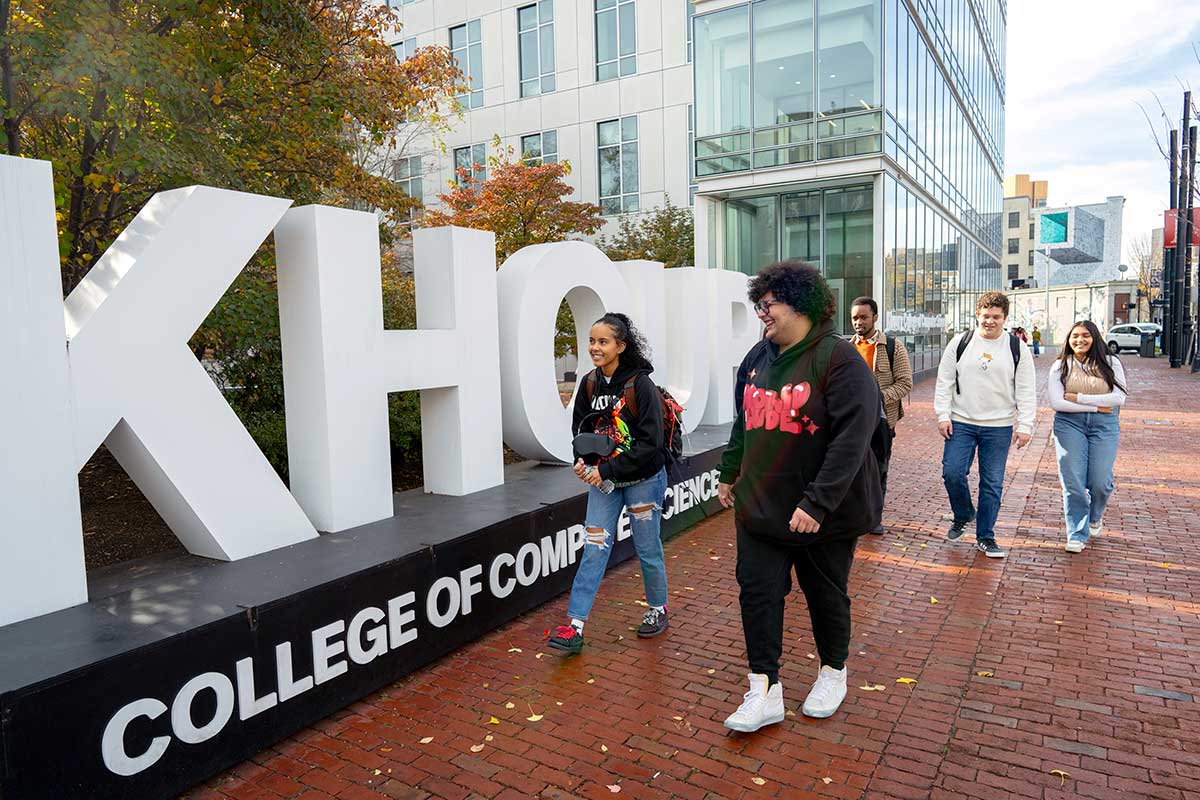
Boston
Located in the heart of Boston, Northeastern’s oldest campus is home to a vibrant community of students, researchers, and faculty working across disciplines to build a better world through CS.
-
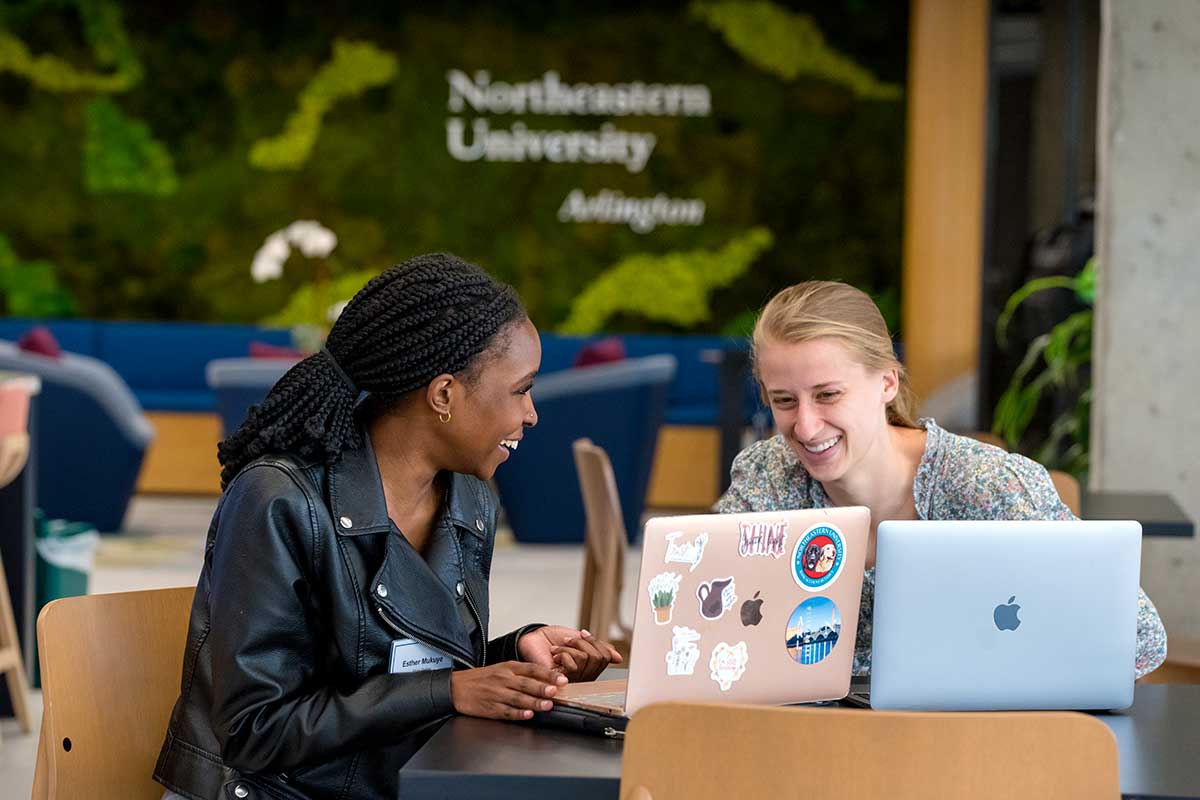
Arlington
The tech hub of the National Capital Region, Arlington offers rich opportunities with thriving companies such as Amazon and Microsoft.
-

Miami
Miami is a bold and creative city — the perfect place to push the boundaries of tech. Come find out what’s possible here.
-

Oakland
Tech companies in Oakland benefit from a diverse and creative local ecosystem with easy access to Silicon Valley resources — providing a massive opportunity for CS education and research.
-

Portland
The collaborative nature of Northeastern’s Roux Institute in Portland connects students with corporate and governmental power players across the Northeast, and beyond.
-

Seattle
The Seattle campus partners with industry, government, and academia to bring programs in high-growth fields to the Pacific Northwest — becoming a valuable part of the region’s economy in the process.
-

Silicon Valley
Located in the heart of the tech revolution (and where it began), the San Jose campus offers students the opportunities to advance the CS field in a program known for industry connections and diverse work opportunities.
-

Vancouver
Vancouver students gain skills and explore partnerships within a regional network that offers experiential and professional opportunities in leading-edge sectors such as AI, e-commerce, financial technology, and more.
Applications, admissions, and accreditation
How to apply
Our Master’s Apply page has everything you need to know about applying to the MS in Computer Science program at Khoury College, including:
- Master’s admissions requirements
- Program specific admissions requirements
- Timelines and deadlines
- Resources and contact information
Financial support
Pursuing a master’s degree is a significant investment in your future. Northeastern University and Khoury College of Computer Sciences are here to help support you in this process. From financial aid to scholarship opportunities to co-op placements and teaching assistantships, there are multiple options to help fund your degree as you work towards your goals.
Degree costs
Visit Student Financial Services for current tuition and fee information, and to find tools and calculators to help you estimate what your degree (32 credit hours) will cost.
Accreditation in Canada
This program is offered under the written consent of the Minister effective May 9, 2024, having undergone a quality assessment process and been found to meet the criteria established by the Minister. Nevertheless, prospective students are responsible for satisfying themselves that the program and the degree will be appropriate to their needs (for example, acceptable to potential employers, professional licensing bodies, or other educational institutions).
The term “university” is used under the written consent of the Minister of Post-Secondary Education and Future Skills effective May 9, 2024, having undergone a quality assessment process and been found to meet the criteria established by the Minister.
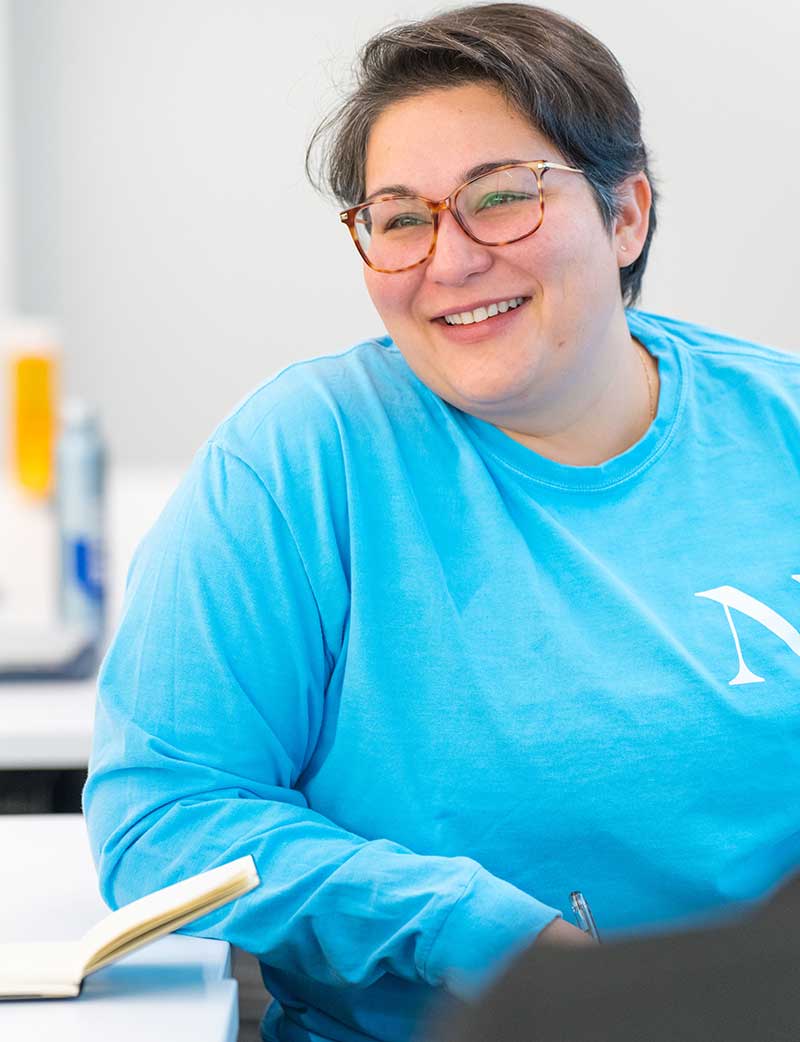
Application deadlines
Domestic
Spring 2026 semester: December 1
Fall 2026 semester: August 30
International applying to US campuses
Spring 2026 semester: November 1
Fall 2026 semester: May 1
International applying to Vancouver campus
Spring 2026 semester: November 1
Fall 2026 semester: June 1
Meet our faculty
Get to know the engaged, experienced professors who are here to support you every step of the way.

Richard Hoshino
Richard Hoshino is a teaching professor at Khoury College focusing on discrete structures, algorithms, and AI. He owns the boutique math consulting firm Hoshino Math Services and is the youngest-ever recipient of the prestigious Adrien Pouliot Award for math education.
No tech background? Check out the Align program
If you don’t have a background in computer science, then the Align MS in Computer Science might be for you. This program offers a direct path to a master’s degree — no prior tech experience required.
Institutes and Centers
Where engaged students, expert faculty, experienced research scientists, and industry and government partners work together to solve big challenges.
Related programs
-
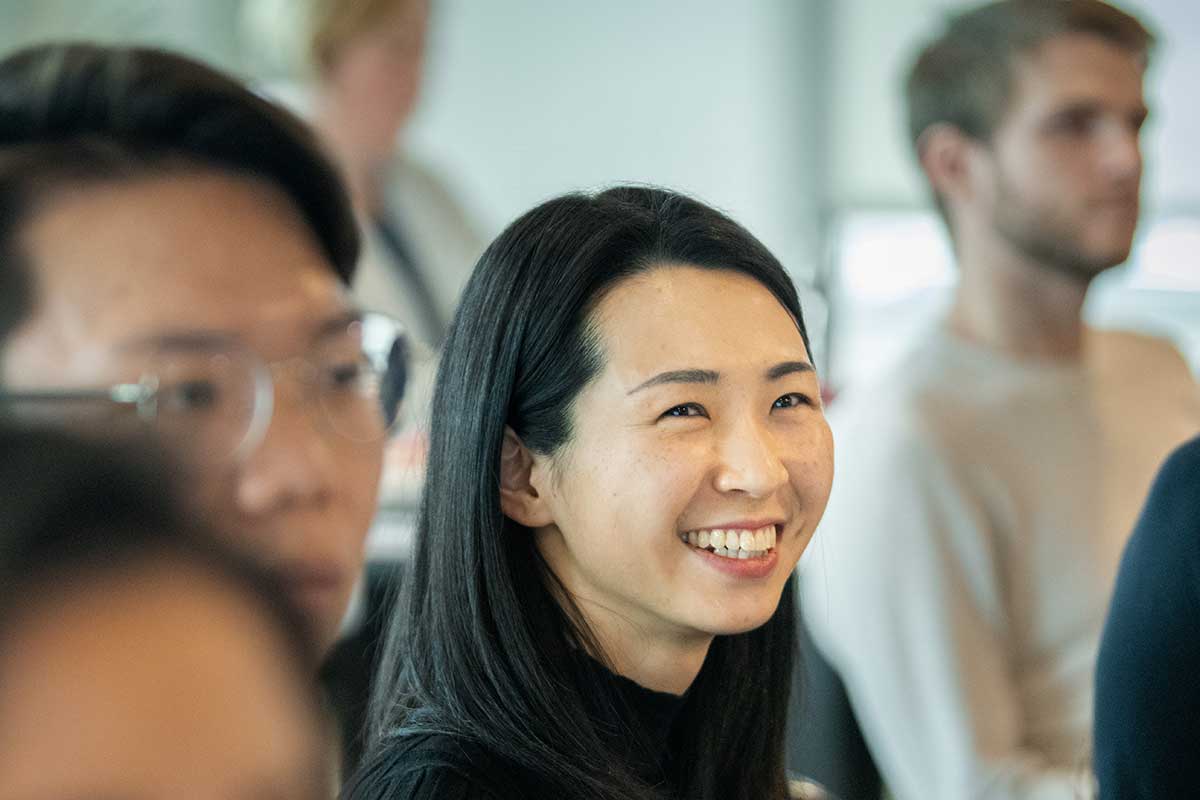
MS in Artificial Intelligence
The MS in Artificial Intelligence at Khoury College provides a comprehensive framework of theory and practice in the emerging field of AI.
-

MS in Cybersecurity
The MS in Cybersecurity will equip you to manage ongoing information security risks as you tackle digital threats.
-
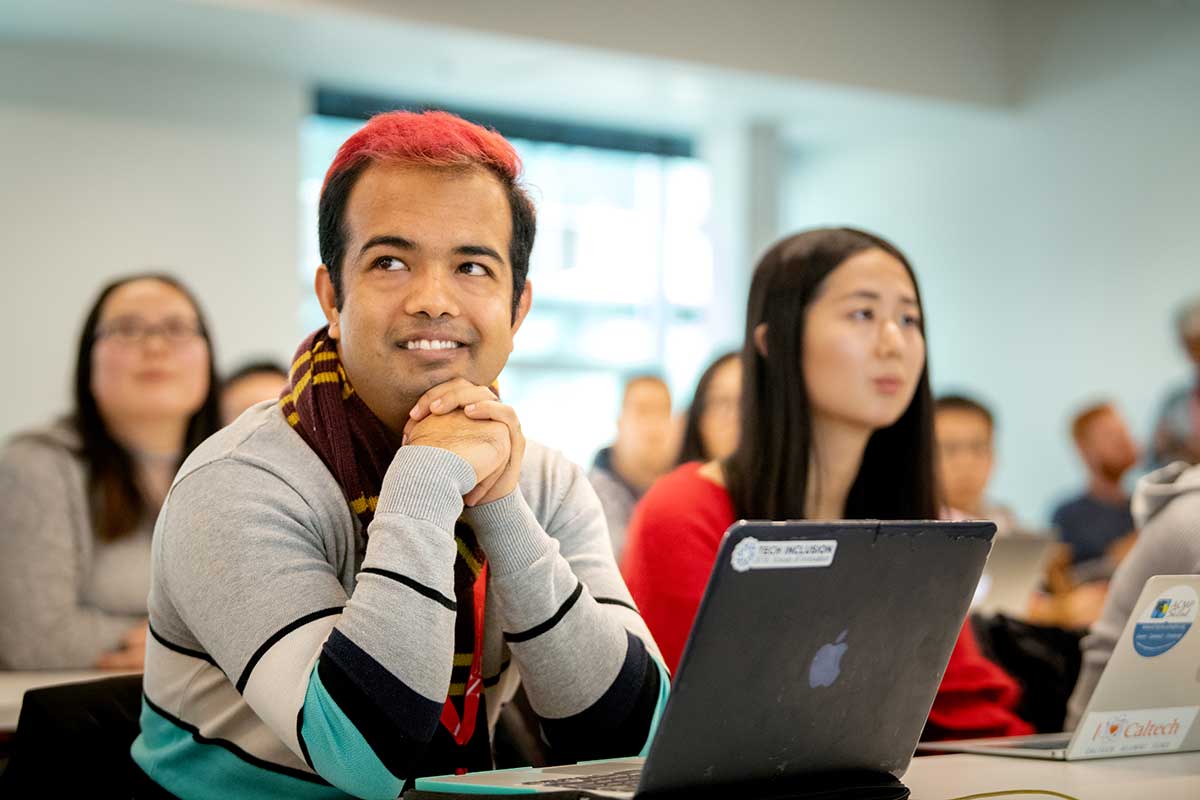
MS in Data Science
Our interdisciplinary MS in Data Science will equip you with expertise and tools to address the unique challenges of our increasingly data-driven society.
Have questions?
Find answers in our FAQ, or complete this form to learn more about the MS in Computer Science program. One of our enrollment counselors will contact you soon.